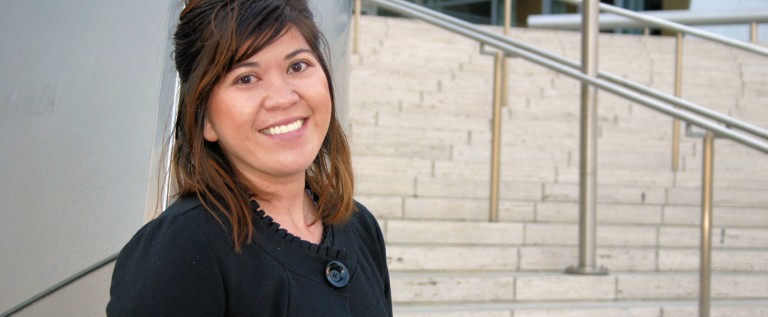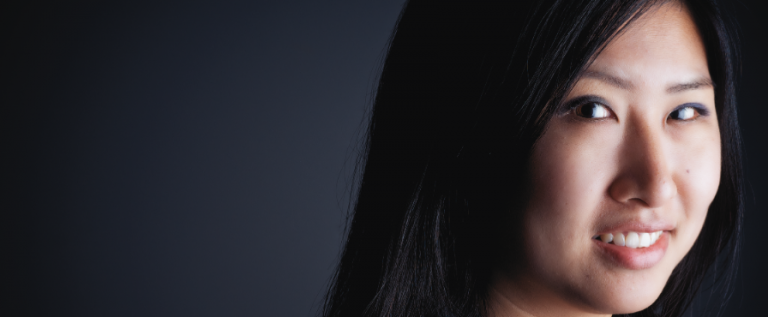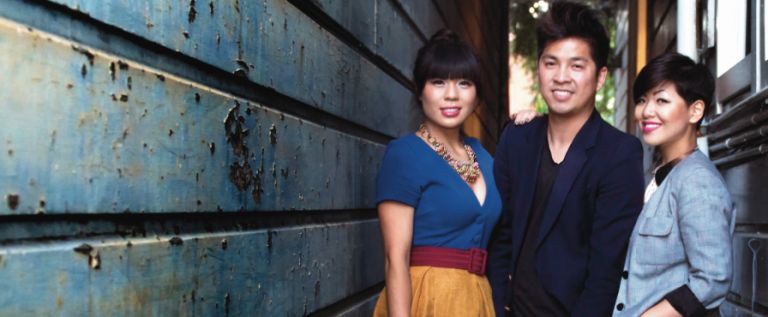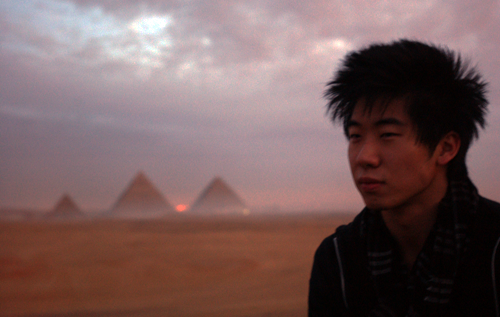Charmaine Manansala: Making It in America

Charmaine Manansala, the first staff-member for the White House Initiative on Asian American Pacific Islanders, talks to ALIST columnist Svetlana Kim about working hard, giving back, and making the most out of life’s unexpected turns.
SK: Charmaine, where do we start with you? You have accomplished so much in your life. You came from Philippines to pursue your education. You received your Bachelors degree in biochemistry with a minor in theatre from Smith College. You made it in America. What was like for you to be far away and be on your own at early age?
CM: Well, I actually moved to Los Angeles with my family from Manila at the age of nine. Like many families, my parents wanted to provide us opportunities we might not have had otherwise, had we stayed in the Philippines. My family values education, no matter how far away it is from home. My grandmother left the Philippines to get her PhD from NYU. So, going to Smith in Massachusetts was not a big deal, I suppose.
SK: You have over 15 years of federal, legislative, and political campaign experience. How did you start your career in Washington, DC?
I started by doing a Management Fellowship with the American Association of Health Plans. In that fellowship, we had various rotations in different healthcare settings. I was adamant about doing a rotation at the then former Healthcare Finance Agency (HCFA) but instead got placed at the Health Resources Services Administration (HRSA). At HRSA, I had the opportunity to do several projects on minority health and one very special project, to think about an Executive Order for Asian Americans and Pacific Islanders. It was a case of being at the right place at the right time. HRSA became the lead agency after President Clinton signed the Executive Order creating the White House Initiative on AAPIs, and I became the first staffer of that office.
My career would not be the way it’s been had it not been for the HRSA fellowship I originally did not want. The adage that everything happens for a reason could not be truer.
SK: What are some keys to your success?
I think for me, it’s always doing things that I’m passionate about and working on projects I believe in. I’ve been fortunate enough to have so many doors open up for me that allow me to work on social justice issues, Asian American and Pacific Islander issues, and labor, amongst others. Also, I’d say a key to the success I’ve had is having a very supportive family and group of friends who put up with me even at my craziest moments and who remind me that I’m a good person doing the right things.
SK: Of all your accomplishments, what are you most proud of?
So many of my projects and endeavors have been so meaningful to me; it’s hard to pick. One of them would be the passage of the Filipino veterans’ legislation. I felt that my legislative work was impactful to the recognition Filipino veterans had been waiting over 60 years for. Another would be our work on the first White House Initiative on Asian Americans and Pacific Islanders. It really laid the groundwork for the federal agency activities we see on behalf of AAPIs today.
SK: What was your biggest obstacle, and how did you manage to overcome it?
I almost don’t want to say this because I don’t want people to think of people with disabilities differently, but it’s having MS. I’ve now had multiple sclerosis for 14 years. It’s rare but there are days when it’s hard to even get up. But for the most part, I’ve managed really well. Aside from walking slow, it’s not slowed me down at all in life, work, in all aspects. I haven’t overcome MS but I’ve learned to live with it.
SK: I often hear from young professionals that it is not always easy to find a good mentor. Did you have mentor/s throughout your career?
I have been so fortunate to have come across plenty of kind, generous, and thoughtful mentors throughout my life. Among them are Shamina Singh, the late Maria Haley, Congressman Robert Underwood, my cousin Marc Saleh and Vida Benavides. Each of them guided me on my career path. They are/were great sounding boards and also great connectors. I am so fortunate that they took me under their wings, and I will forever be grateful.
SK: What would you consider your most significant event in your life or career?
It would have to be losing my father at the age of 16. My father was living in the Philippines when he got sick. During that time, my eldest brother and sister were in college, and my little sister was quite young. It was on me to go to Manila and take care of him. I literally lived in a hospital for months on end and had a cot next to his hospital bed where I slept. Even as bleak as those days were, I also had belly-aching laughs and misadventures with my father. One day, we escaped the hospital, took a cab, and headed to the casinos. I was 16, and I had a very ill patient with me. I will forever treasure that time I spent with him because I learned so much about him as a person and learned about our family. Those months taught me to embrace life and live it to the fullest.
SK: You live your American Dream. Some are just trying to get by in this economy; others are embracing the entrepreneurial spirit and taking even more risks. How do you define “risk” and do you consider yourself a risk taker?
Risk is the probability of failure. I take risks if I see the rewards can be positive, not as in monetary rewards, but as in the impact it can do for my community or my family. For example, some may think my resume is frenetic because I constantly change jobs. I just keep seeing opportunities to give impact to my community so I take that chance.
SK: How do you create opportunities?
I do good, so good comes my way. I work hard so doors open for me. I help others and in turn, others help me. I believe in myself so others believe in me too.
Also, in general, I work really hard. I think people recognize that and doors open.
SK: If there were a perfect blueprint for success, what it would be for you?
There is no perfect blueprint. Life always throws obstacles. You just have to be a good person, work hard, and stick to your values. You also keep family close because they keep you grounded. My sisters and brother are all VERY smart. I kind of just had to keep up with them, especially my younger sister Jannah.
Also, make sure you have friends who tell it like it is, challenge you intellectually, and also remind you to let your guard down. When I got to Washington, DC, I was so fortunate to have a tight circle of friends who were like-minded and driven. They pushed me to be better and do better.
SK: US Census statistics show that there are currently 18.2 million Asian Americans, with that number expected to increase to 20.9 million by 2017. According to a Nielsen report which reveals the buying power of the Asian American population has increased 523% since 1990, it is expected to reach over $1 trillion within next 5 years. Marketers are hoping to attract Asian American consumers. What should we take into consideration?
Well, I’m learning so much about this being at Imprenta Communications Group. Marketers should realize that with the growth of the community, there’s so much potential. AAPIs have largely been untapped. Marketers need to know that AAPIs are a diverse group, speaking many different languages, coming from different backgrounds. Whatever strategy they employ, do it in a way that’s relevant and not condescending. Do it in a linguistically accessible and culturally appropriate manner. There is not a one size fit all marketing strategy for this population. And if they don’t market to this group, they will miss out.
SK: Do you think that young women today have more opportunities than your generation?
Because I am still fairly young, I would have to say the same. I grew up when the Philippines had its first female President, and my boss Nancy Pelosi became the first Speaker of the House. I hope in the next election we see our first female U.S. President. There is no doubt that glass ceilings continue to exist in many sectors of society and that women continue to not get paid equitably as our male counterparts. I hope that changes.
SK: What is your ultimate goal in life?
It is simple; I want to live a happy and meaningful life.
SK: What’s your motto?
Lately? Wake up. Kick ass. Repeat. The last decade? It’s the saying by Hillel the Elder, “If not you, who? If not now, when?”
SK: Who’s your heroine?
My mother. She’s a fearless individual who taught me the values of family, faith, and hard work. To this day, I have yet to meet anyone as selfless my mother has acted towards my siblings and I.
Charmaine, it is a great pleasure to have you with us today. Thank you for your public service. Wishing you ongoing success!





